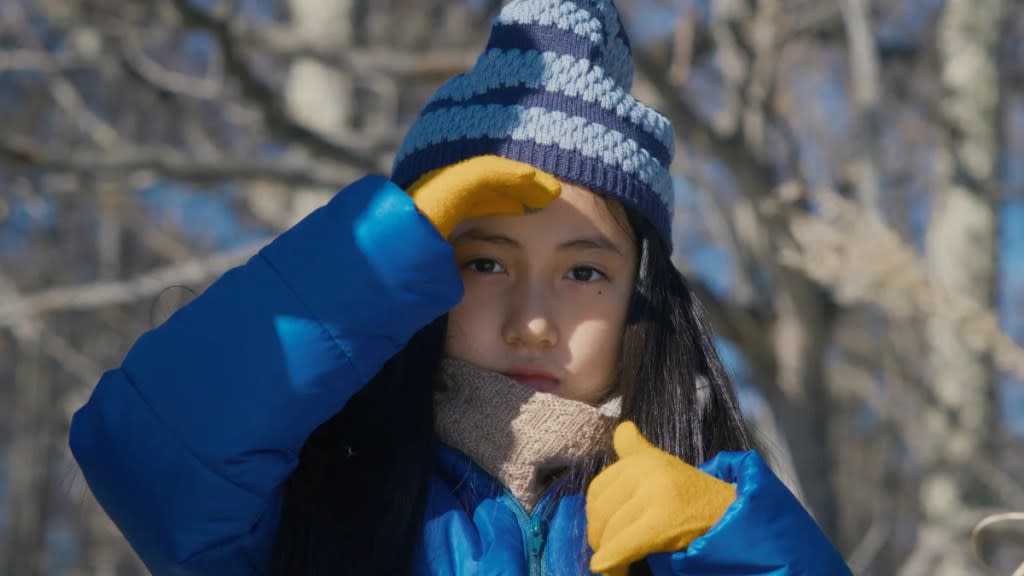‘Evil Does Not Exist’ Review: Ryusuke Hamaguchi’s ‘Drive My Car’ Follow-Up Is Morally Sprawling

The opening, multi-minute shot of “Evil Does Not Exist” stares upwards at the trees, floating backwards through the forest, while Eiko Ishibashi’s haunting score casts a spell on us. It’s contemplative but not peaceful; weirdly arresting, like a thriller with no tangible thrills. It’s almost a shock when the story kicks in, but writer/director Ryusuke Hamaguchi looks at his characters much the same way. He’s fascinated and concerned by who they are and what they might do, and he watches them float by.
Hamaguchi’s previous film, “Drive My Car,” was a nearly three-hour drama about a man directing a stage version of Anton Chekhov’s “Uncle Vanya” where every character speaks a different language. Along the way, he formed a relationship with his production-mandated chauffeur who — fittingly enough — drives his car, as they listen to recordings of his recently-deceased wife reading the script. You would be forgiving for not assuming, after reading that synopsis, that it was one of the most riveting motion pictures of 2021. Indeed, it’s one of the better films to win the Oscar for Best International Feature in recent memory.
“Evil Does Not Exist” is not a three-hour film. It clocks in at a comparatively spritely 106 minutes. But Hamaguchi’s pacing has many of the same rhythms. The plot is in seemingly no rush to move forward, arranging itself amidst smaller moments and little distractions, the way that the plots (if you can call them that) in our own lives have to compete with all the other day-to-day experiences that we don’t think to write about in our diaries.
The film takes place in Mizubiki, a small village where many local residents live in relative harmony with the local ecosystem, such as exclusively using spring water in their restaurants, for example. When a new business venture attempts to move into town and start a glamping community (“glamorous camping,” it’s a real thing), two representatives of the venture — Takahashi (Ryûji Kosaka) and Mayuzumi (Ayaka Shibutani, “Happy Hour”) — hold a meeting with the locals, which they assume is a mere formality, since surely everybody wants more tourist money.
What gradually unfolds is a long, in-depth, detailed discussion of proper septic tank placement, and, I cannot stress this enough: Septic tanks have never been this dramatically gripping before. Takahashi and Mayuzumi find themselves forced to defend the idea that only tainting the local drinking water with the sewage produced by five human beings a day is no big deal. They had no concept of how their economic decisions could impact the people downstream, literally and figuratively.
“Evil Does Not Exist” is an apt title, because many characters in Hamaguchi’s film do things that would, in other films, be dramatized as acts of evil. There’s a judgment on many films about environmentalism that’s perfectly understandable, but doesn’t always do a service to its characters, or enrich our understanding of why people let terrible things happen and still think of themselves as decent humans. This is a film that uncovers how all of our choices, even the mundane ones that seem divorced from our surroundings, are part of the natural world. They’re just not always a healthy part.
Takahashi and Mayuzumi’s story is counterbalanced by Takumi (Hitoshi Omika, formerly the production manager on “Wheel of Fortune and Fantasy”), who lives in the woods with his daughter and gets by on odd jobs. He bottles spring water and chops firewood. He knows all the local flora and fauna, and finds wild wasabi for the village’s restaurant. But he’s not infallible. He constantly forgets to pick his daughter up from school, and he insists that the gunshots they hear are hunters in the far distance, even though the dead deer are turning up closer and closer to home.
The stories in “Evil Does Not Exist” collide and conclude in a series of events that reframe all that we’ve seen before. It’s still a contemplative drama about mankind’s subconscious and sprawling impact on the rest of nature, but there’s more to nature than pretty shots of trees. There’s danger, too, and a tendency for animals to behave in ways that look random but have an internal logic; that is, if you understand their plight. The final minutes of “Evil Does Not Exist” are a natural extension of the rest of the story, but they might surprise you anyway.
Ryusuke Hamaguchi is an expert at crafting films that subtly enthrall our minds, and this is just more proof. The confidence with which the director crafts tension out of quietude is a wonder, and his ability to introduce narrative elements that in any other film would qualify as melodrama only to make them naturalistic, has few rivals. “Evil Does Not Exist” walks out of the theater with you and asks you to sit down on the nearest bench, where it waits patiently as you mull over what you’ve just experienced and come to your own conclusions. And as you walk away, it stays right with you; a valuable memory, a film that means something.
“Evil Does Not Exist” is now playing in select theaters.
The post ‘Evil Does Not Exist’ Review: Ryusuke Hamaguchi’s ‘Drive My Car’ Follow-Up Is Morally Sprawling appeared first on TheWrap.


